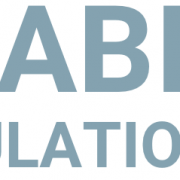Major Overhaul to Reg. D on the Way?
All good things must come to an end. Or, perhaps it is better to frame the issue as the law must change with the times to reflect realities in the market and better serve the investing public. Whatever your view of the benefits and burdens of government regulation, SEC Regulation D has been a savior to the small business community since its original adoption in 1982, facilitating capital raising efforts across America for five decades. Recent public comments from current SEC Commissioner Caroline Crenshaw suggest that some significant updates to Regulation D may be on the way.
Commissioner Crenshaw emphasized in a recent speech her belief that Rule 506 of Reg. D—far and away the most popular of the three Reg. D exemptions—is outdated. A quick overview of Rule 506 can be found here. Regulation D dates back to the early 1980s when private companies were smaller and sophisticated investors were considered to have access to the necessary information to make informed investment decisions without interference from the SEC registration process. However, the world is a very different place in 2023. Business startups are now raising billions of dollars from a broad range of investors through ever-growing marketing strategies and platforms; thus it should come as no surprise that some would genuinely believe that Reg. D needs a substantive update.
“Like the children’s book, the Very Hungry Caterpillar, unfettered access to capital through Rule 506 has had a bloating effect on private issuers,” Crenshaw said. She suggests revamping Reg. D to more closely resemble Regulation A, a tiered system where reporting requirements increase with offering size. The SEC has publicly announced its intention to consider changes to Regulation D as part of its rule-making agenda for the purpose of enhancing investor protection.
The argument in support of increased regulation is, simply put, that investors are not protected in the same ways in private offerings as they are in public offerings. By design, the Rule 506 exemption provides insulation from state blue sky laws and from the registration requirements of federal securities laws.
“The current logic for that exemption, more or less, is that if investors are accredited, there is no need for any baseline regulatory disclosure obligations,” Crenshaw said. “Many would say, in fact, that large private issuers are backed by the most sophisticated investors in the world and don’t need the SEC to impose disclosure or corporate governance protections. I am concerned, though, that sophistication is not quite the safeguard it’s presumed to be.”
Time will tell, but it appears to be a safe bet that the future of raising capital through a Regulation D private offering is going to get a bit more complicated and expensive in the foreseeable future. Stay tuned for updates.







Leave a Reply
Want to join the discussion?Feel free to contribute!